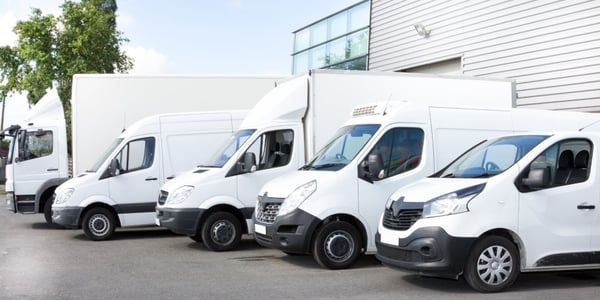
To lease or buy a truck is sometimes a tough call that businesses and individuals have to make. Companies have to make the right fleet management, acquisition, and financing decisions to grow and save their money. Likewise, individual owners need to assess the benefits of leasing vehicles before making financial commitments that may prove unnecessarily costly in the long run.
To help you make an informed choice, here are some great perks that come with leasing rather than buying new vehicles:
1. Short-Term Financial Commitment
A car lease is a short-term arrangement that lets you use a dealer's vehicle as you would your own for three or so years. When the deal ends, all the payments and financial obligations associated with it are also over.
The good thing is that, after the lease expires, you don't have to commit to another one immediately, especially if you don't have the funds, or you no longer need a car in the meantime.
2. Low Down Payment
The down payment for buying a new car puts off many potential owners. The upfront cost could be as high as 10% of the vehicle's price, and if you're considering building a fleet, the required total payment may be very prohibitive.
However, you may lease an automobile with zero or little initial costs. Such an arrangement may let you drive a top-of-the-range car you couldn't otherwise afford.
If you're a startup, the low principal payment with leasing a fleet may mean a lower market-entry threshold for you. You could decide to launch the business sooner or spend more of your capital in other key aspects of your operations.
3. Warranty Benefits
Most new car dealers give a three-year warranty, which is also the duration of most leases. If the warranty covers necessary maintenance, the customer may only have to worry about insurance and fuel costs during the lease period.
Now, according to Statista, it cost roughly 7.9 cents per mile to service a car in the U.S. in 2017. When you multiply that rate by the mileage that your vehicle or fleet does in 3 years, you start seeing the commercial benefits of maintenance-free car leasing.
4. Car Lease Tax Benefits
It's always a sound business practice to maximize tax benefits as per the U.S. tax code. So, your company may claim a new car lease tax deduction. However, only business applications of a leased car are eligible for such benefits.
The law requires you to show that you've been using the vehicle for business-related work at least 50 percent of the time. For instance, if personal car use accounts for 40 percent of the total mileage in a year, the same percentage of lease payments does not constitute tax-deductible business expenses. Be sure to engage your tax consultant for help navigating the legal aspects of claiming such benefits.
5. Top-Condition Fleet
Individual and business drivers alike are usually excited about driving new vehicles because these are generally in top shape. Leasing a car guarantees that you can use the latest model in the market after every three or so years.
Such vehicles provide much more than comfort. For example, newer fleets may come with advanced technology and increased fuel efficiency, which is desirable for business applications. Also, if you do not like specific features of the leased car after driving it for a while, you only need to wait a few months or maybe a year before you can replace it.
In contrast, if you owned a poorly-performing automobile, you'd probably struggle for some time looking for a ready buyer before getting yourself a better replacement.
Well, choosing between buying and leasing a car typically comes down to personal preferences. However, your final call may either mean low-cost fleet/car operations or not affording a top-quality automobile at all.
At Wilmar, we offer fleet management advice to help investors like you make financially-prudent decisions. Get in touch with us right away for inquiries!







